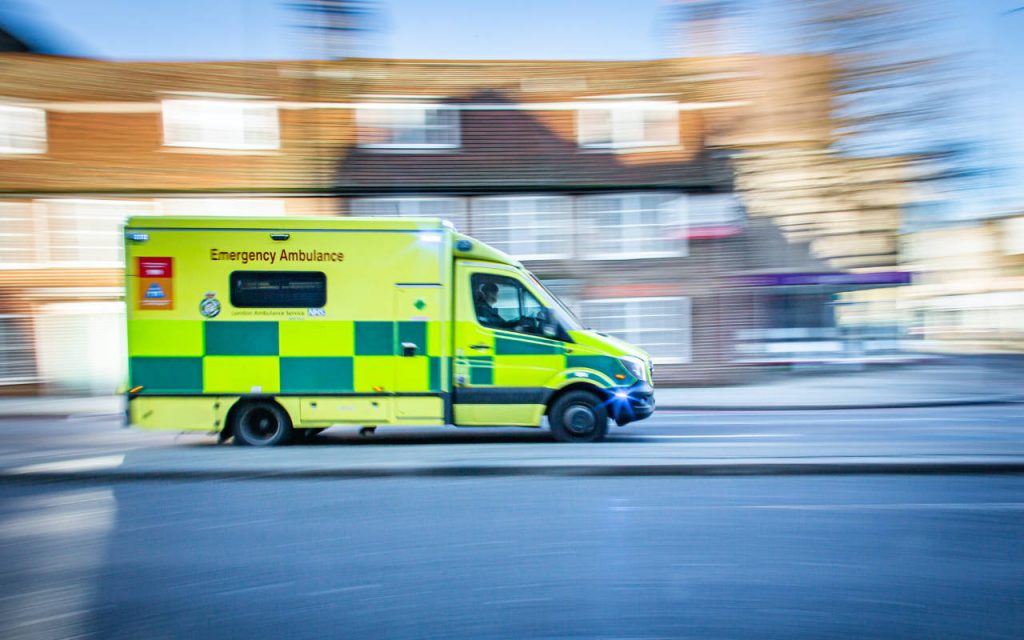Plastic packaging has a bad image. But the reality is – without it, many of us would have never been born, or we might well have lost our parents in the process. Without medical-grade polythene packaging and advanced surgical plastics, modern medicine as we know it would be completely impossible.
Polythene’s high impact resistance and chemical resistance, low moisture absorption and low risk for bacterial contamination make it an excellent medical-grade plastic for use in sterile environments. And, because polythene is inert and highly stable, it’s also considered one of the best materials for surgical implants.
Polythene offers so many different polymer blends that can enhance its already excellent properties, making it a vital packaging component for sensitive medical devices and sterile equipment, too.
In short, polythene is one of the most important materials in medicine today.

Polythene use in hospitals
Hospitals are big places, with catering facilities, specialist waste disposal systems and even their own power supplies. They work like mini cities – and plastic is used everywhere!
Sterile packaging for tools and devices is just one of the uses of polythene in hospitals – it’s also used in catering, and to make single use equipment. PPE, as an example, has been extremely important during Covid-19. Medical aprons made of polythene offer a cost-effective, disposable, and moisture-proof protective barrier – vital in preventing the spread of infection.
Biomedical applications of polyethylene
One of the most exciting uses for polythene in medicine is as a surgical implant surface. Its properties give it a number of advantages as a biomaterial for implants, and polythene has been extensively used to create porous, high-density implants for facial and cranial reconstructive surgery.
Medical waste management
Polythene is also used to deal with medical waste, because it’s affordable, strong, leak-resistant and highly versatile. Coloured polythene is used to clearly mark different types of medical waste in hospitals, and warnings can be printed directly onto polythene bags for medical waste.
But there’s no escaping it; the additional waste caused by medical plastics has to be factored into the environmental impact of plastics.
Read more: The problem with plastic
Medical-grade polythene packaging could potentially be recyclable, but it’s seen as a contamination risk that most are unwilling to take. We’ll get back to that.
As for single-use PPE and medical equipment, the contamination risk is practically 100% – so there’s no chance of recycling or reuse there, unless the time was taken to sterilise each unit. In developing nations, where hospital budgets are almost non-existent, plastic medical equipment is often painstakingly sterilised and used over and over, until it breaks. But in western hospitals, the cost of doing so outweighs the cost of new plastic equipment.
The environmental footprint of healthcare cannot be ignored – but it’s something of a necessary evil when lives are immediately at stake. Weighing up the cost to the environment against patients’ lives isn’t a compromise healthcare professionals are willing to make. Single-use PPE and medical equipment are safe and time-critical tools, and the alternatives are so costly that they won’t make it past a budget review.
So, what’s the alternative?
Can medical care exist without polythene?
No, not anymore. It’s vital to the way medical care operates today. But there are certainly many plastics that could be recovered and recycled – items that don’t come in contact with patients and pose no risk of contamination like packaging and storage containers. We said we’d come back to that – and here it is;
The “ick” factor.
People are generally repulsed by the idea of reusing medical waste – even if it’s never come into contact with a patient. For all the hospitals that do attempt to sort their plastic for recycling, making it an attractive prospect for a recycler isn’t easy. A lot of safeguarding and checks have to be put in place, and trust is remarkably low thanks to the ‘ick” factor.
See our full list of recyclable plastics
Perhaps all we need is a change of mindset, then – deeper trust in sorting processes and due diligence when it comes to recycling plastic from hospitals. And while not ideal, medical waste that can’t be effectively recycled could find use in energy production, extracting useful power and offsetting our reliance on other fuel sources.
However the future goes, medical-grade polythene looks set to be a big part of it. And together, we can make it save more lives – without harming life on Earth.
Specialist polythene packaging for medical devices
If you need medical-grade polythene packaging for medical equipment, talk to our friendly, knowledgeable team at NPF Packaging. Get a quote now, or call us on 01773 820415.


